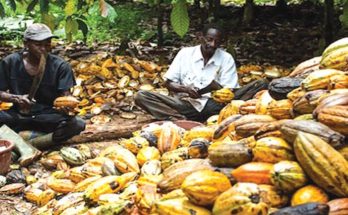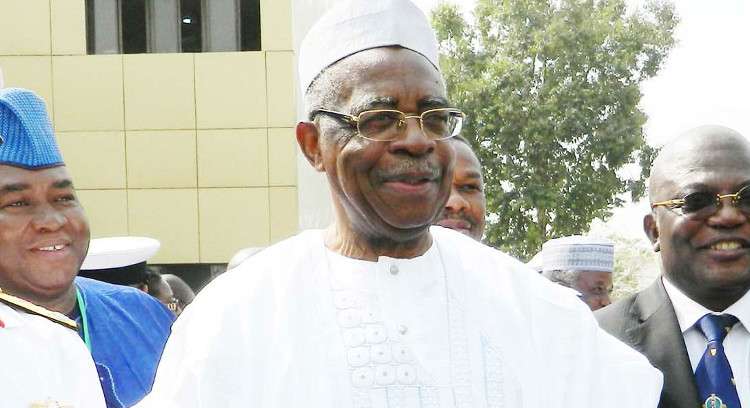
Recent studies criticising the global chocolate industry for exploitative practices have concerned ethical consumers.
Cocoa farmers only earn about 6 per cent of the chocolate industry’s total revenues. Leading chocolate companies have since 2001 made pledges to end widespread abusive labour practices, but continue to fall short.
In Ghana, local firm Federated Commodities has shown it is only by improving the cocoa supply chain, with experienced local oversight, that ethical, sustainable and profitable cocoa and chocolate industries can exist. CEO Hajia Maria Adamu-Zibo is ready to form international partnerships to take the Ghanian cocoa sector forwards.
Cocoa is essential to the livelihoods of up to 50 million people around the world, including around five million smallholder farmers. West Africa, mainly Ghana and Ivory Coast, produces about 70% of the world’s cocoa on 1.5 million farms, with the majority of the crop coming from small farms (3-5 hectares of land).
READ ALSO: Why We Killed Borno Farmers – Boko Haram
Cocoa farmers work very hard, often under strenuous conditions, yet don’t earn enough to cover their basic needs. Although the worldwide chocolate market is valued at USD 103 billion, on average, farmers earn only about 6% of the chocolate industry’s total revenues. Many cocoa farming communities in West Africa lack access to education, potable water, and basic social amenities.
Furthermore, labour practices on cocoa farms are problematic. In a bid to reduce production costs, farmers are inclined towards child labour. An estimated 1.56 million children work on cocoa farms in Ghana and Ivory Coast. About 43% of children aged 5-17 in these two countries are engaged in hazardous work, including exposure to agrochemicals without protective equipment, the use of dangerous tools and working at night.
Despite years of pledges from chocolate manufacturers to end abusive employment practices in their supply chains, there has been a 14% increase in the number of children working in cocoa farms over the past 10 years, accompanied by a 62% rise in production.
Federated Commodities’ Sustainable Practices Countering Child Labour in the Cocoa Industry
The Director of Impact at the Fairtrade Foundation (www.Fairtrade.org.uk), Louisa Cox, cited in a Guardian article (https://bit.ly/2JubU5y) suggested that ‘long-term finance, training and technical services, and helping farmers diversify beyond cocoa’ is needed to help address child labour in the cocoa industry. These are all measures that Federated Commodities (FedCo)—an indigenous licensed buying company (LBC) founded in 1996 in Ghana—has a sustained track record of taking.
READ ALSO: COVID-19 2nd wave: WAHO warns ECOWAS member states to remain vigilant
“As an affiliate company of Global Haulage (GlobalHaulageGroup.com), FedCo engages in the supply of traceable and certified cocoa beans to help promote sustainability in cocoa production through community development and capacity building of farmers. Under this programme, farmers are trained on adult literacy and good agricultural, business and social practices, which empowers them economically,” says Hajia Maria Adamu-Zibo, the Managing Director of Federated Commodities, in an interview with AfricaLive.net (https://bit.ly/3ocQE3B).
“The wellbeing of the farmer is of high priority to us. We strive to have a relationship beyond just transactions with the over 50,000 farmers who make up our supply base. We were amongst the first indigenous privately owned firms to go into sustainability. FedCo has achieved several milestones since then. We have 300 employees, 1,700 purchasing clerks, a larger fleet of vehicles, as well as an affiliate company that does not only cocoa haulage but also other endeavours related to the industry.”
“We have also touched the lives of countless farmers and communities across Ghana through social interventions. The FedCo Cocoa Farmers Association consisting of about 15,000 farmers provides social benefits, including funeral benefits, and loan facilities to set up farms, to buy agricultural inputs, and to send their children to school. A total of 3,000 farmers have benefited from various forms of financial support in excess of USD 500,000 towards their farming activities. Together with our partners, FedCo has since 2012 supplied over 44,000MT of sustainable cocoa beans and invested about USD 7 million in sustainability, through training, cash premium payments, and various projects.”
“Access to financing has always been a problem for the farmers. Farmers’ lives are improved when we facilitate access to inputs and credit facilities so that they effectively carry out their pre-and post-harvest work. We are big on helping farmers by assisting them add value their livelihoods. Going forward, we intend to help more farmers improve their living income by helping them get sustainability programs that will see them get paid more.”
On diversification beyond cocoa, Hajia Adamu-Zibo says, “We have diversified into the cashew market which gives us a great alternative during the lean period of the cocoa season. Part of our community engagement drive is getting into farm service agreements with individual farmers. Deals like that will see us take care of their yield in exchange for the commodity after harvest. Diversification helps farmers earn more because they are not banking their livelihoods on just one crop. Processing is part of our long term plan as well.”
Empowering Farmers through Local Educational Authorities and Skills Partnerships
Federated Commodities has big dreams for farmers in Ghana. “We go beyond just buying. We really try to do more for the farmers and communities,” says Hajia Adamu-Zibo. The LBC believes that partnering with academic institutions to impart technical skills holds promise for improving farmers’ lives and the cocoa industry.
“We have put in place programmes to help improve the quality of life of our farmers. For instance, we have worked with local educational authorities to build schools that will help give youth relevant skills to work in the industry. So far, we have constructed seven schools and intend to build more,” she says.
“Training programmes for farmers are also part of our agenda so that they can learn how to diversify crops and make use of crop by-products. We are also teaching them financial literacy skills to empower them to better manage their finances. Since October 2018, about 2,032 farmers have enrolled in FedCo’s Village Savings and Loan Programme, run in partnership with Solidaridad West Africa, which is enabling farmers to save for their futures and fund their ventures. We have had interactions with the Kumasi Technical School about the possibility of their students making tools that can help farmers break the cocoa. Discussions are also ongoing on how we can mechanise more processes.”
With more partnerships and funding, Federated Commodities aims to be able to do more, for more communities. “Our activities have really enhanced communities. We have also built libraries, computer centres, community halls and over 100 boreholes. It makes me so happy to see FedCo’s impact in the lives of farmers and in communities, and how appreciative they are,” says Hajia Adamu-Zibo.
Case Studies
Valrhona
Working with Valrhona to improve educational facilities in Ghana’s Western Region.
FedCo has a long-term agreement with Valrhona (www.Valrhona-Chocolate.com), a French premium chocolate manufacturer that sources and transforms the finest cocoa to make high-quality chocolate. The agreement allows Valrhona to source cocoa directly from 1001 producers in eight communities in Ghana’s Western region.
Community leaders stressed the importance of improving educational facilities. A subsequent assessment of schools revealed 30% of students were learning in unsafe conditions, while a third of children were out of school. In 2017, Valrhona launched a five-year project to improve access to education and learning conditions for the communities’ 4882 children.
APO

